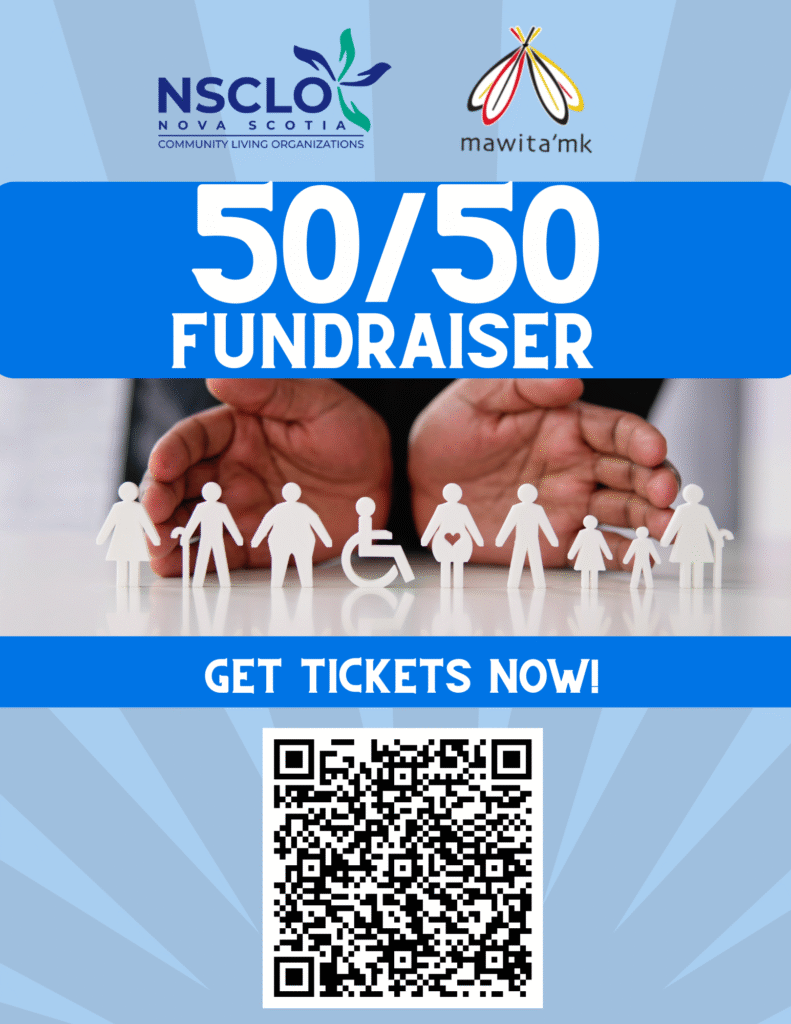Mawita’mk is a registered charitable organization that celebrates the gifts of indigenous people with disabilities.

The late Grand Chief Ben Sylliboy and his sisters Magit Poulette and Theresa Cremo were residential school survivors. The three siblings had a deep love and concern for Mi’kmaq people with disabilities and didn’t want to see them removed from their community, language and culture to access the supports they deserved.
Ben and his wife Marie, Magit and Theresa all volunteered and became friends of L’Arche Cape Breton, a community for people with disabilities that began near We’koqma’q in 1983. In 1999 Grand Chief Ben invited Tom Gunn, founder of L’Arche Cape Breton, and friends to create a new Mi’kmaq organization for people with disabilities. Elder Murdeena Marhsall suggested they call it Mawita’mk (Being Together).
In April 2007, Ni’kinen (Our House) was opened in We’koqma’q L’Nue’kati. Ni’kinen was the first group home in Canada located within an indigenous community.
The Grand Chief, Magit and Tom lobbied hard for services within the community. With the support of the Assembly of Nova Scotia Chiefs, we were able to open Ni’kinen as well as four assisted living apartments in We’koqma’q L’Nue’kati in 2007.
We are funded by Indigenous Services Canada through the Confederation of Mainland Mi’kmaq. We are licensed and inspected by the Nova Scotia Department of Community Services.
"We expect the Department of Indian Affairs (INAC) to treat people with intellectual disabilities and their families fairly. INAC, under their institutional care program should stop removing people from their culture and begin to support community-based services and supports within Mi’kmaq communities.” – Assembly of Nova Scotia Chiefs 2005

In 2023, through fundraising and volunteer efforts, we opened a new Centre called Ben’s Place. Together, we create art and craft projects that are sold in our beautiful gift shop. Ben’s Place is a craft studio but also a community gathering place, where we host elders and friends for cultural events and Bingo.
"We are trying to bring back whatever the residential schools took away from our people."
– Rosie Sylliboy
Mawita'mk News & Events

We’re excited to announce the launch of our first-ever province-wide 50/50 raffle!
Nova Scotia Community Living Organization (NSCLO) and member organizations across the province have come together to create an exciting way for you to support inclusive, community-based care—and have a chance to win!
When you purchase a ticket, you’re helping improve the lives of people living with disabilities and mental health challenges in communities across Nova Scotia.
Where your support goes:
Funds raised through the 50/50 will directly support local programs that provide:
- Safe and supportive housing
- Life skills and wellness programming
- Mental health and disability support
- Opportunities for social connection and inclusion
Every dollar stays local – and every ticket you buy helps someone feel more at home in their community.
Let’s build a more inclusive Nova Scotia—together.
OUR STORIES ~ NTA’TUKWAQNMINAL
Help us create more opportunities for Mi'kmaq people living with disabilities.





